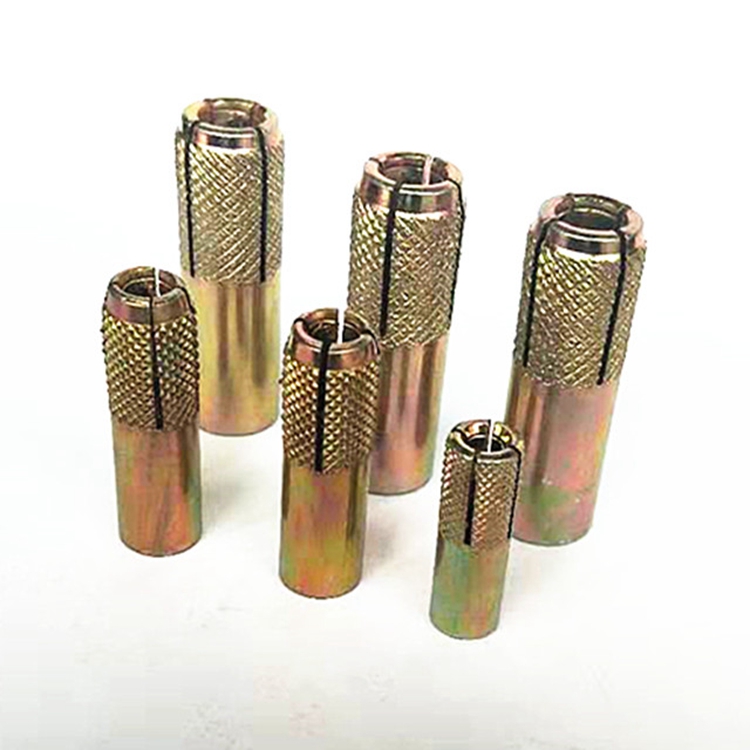high quality thicken hex nut
Oct . 20, 2024 06:17 Back to list
high quality thicken hex nut
High Quality Thickened Hex Nuts Enhancing Strength and Durability in Engineering Applications
In the realm of mechanical engineering and structural applications, the importance of fasteners cannot be overstated. Among these, hex nuts are pivotal components that ensure the integrity and stability of various assemblies. When we delve into the specifics of hex nuts, high quality thickened hex nuts emerge as a critical subcategory that offers notable advantages in terms of strength, durability, and performance.
Understanding Hex Nuts
Hex nuts are hexagonal-shaped fasteners designed to be used in conjunction with bolts or screws. Their six-sided shape provides a robust grip that allows for the application of torque, ensuring a secure fit. These fasteners are typically made from various materials, including steel, stainless steel, and brass, which can be treated or coated to resist corrosion and wear.
The Significance of Thickness
The thickness of a hex nut plays a notable role in its overall performance and application suitability. High quality thickened hex nuts are designed with increased thickness compared to standard variants, which brings several advantages
1. Enhanced Load-Bearing Capacity The thicker design allows these nuts to withstand higher loads without deformation. This is particularly important in heavy industrial applications or where safety is paramount. Increased thickness translates to a larger surface area in contact with the bolt, promoting better load distribution.
2. Improved Resistance to Stripping In demanding applications, hex nuts are subject to significant stress. High quality thickened hex nuts provide increased resistance to stripping, ensuring that the threads remain intact even under severe conditions. This feature is crucial for maintaining the reliability of assembled structures.
3. Greater Durability Thickened hex nuts are often more durable, showing resilience against wear and mechanical fatigue. This extends the lifespan of the nut and the entire assembly, reducing the need for frequent replacements and maintenance, which is both cost-effective and time-saving.
Applications of High Quality Thickened Hex Nuts
These robust fasteners find applications across various industries. Here are some notable areas where high quality thickened hex nuts are particularly beneficial
high quality thicken hex nut

- Construction In the construction of buildings, bridges, and other infrastructure, the integrity of the connections between different components is critical
. High quality thickened hex nuts provide the necessary support to withstand dynamic loads and environmental stresses.- Automotive Engineering Vehicles experience significant vibrations and forces during operation. Utilizing thickened hex nuts can enhance the reliability of critical components, from engine mounts to suspension systems, ensuring safety and performance.
- Heavy Machinery In industries such as mining and manufacturing, equipment operates under heavy loads and harsh conditions. High quality thickened hex nuts are essential for maintaining the integrity and safety of machinery assemblies.
- Aerospace In the aerospace sector, where safety and performance are paramount, the use of thickened hex nuts in various assemblies contributes to the overall reliability and performance of aircraft components.
Choosing the Right Product
When selecting high quality thickened hex nuts, it’s important to consider several factors
1. Material The material should match the requirements of the application, taking into account load, environmental conditions, and the potential for corrosion.
2. Thread Standards Ensure that the hex nuts meet the necessary thread standards for compatibility with bolts and screws in use.
3. Quality Assurance Look for products that adhere to industry standards and certifications, ensuring they have been tested for strength and durability.
Conclusion
High quality thickened hex nuts represent a crucial advancement in the field of fasteners, offering enhanced load-bearing capacity, improved resistance to stripping, and greater durability across various applications. Their importance spans multiple industries, from construction and automotive to aerospace and heavy machinery. Investing in these robust fasteners not only contributes to the safety and integrity of assembled structures but also enhances overall operational efficiency. As engineering demands continue to evolve, the evolution and improvement of such fasteners will undoubtedly play a crucial role in meeting those needs.
Latest news
-
High-Quality Panel Stud Bolt Reliable Panel Stud Bolt Factory & Suppliers
NewsJul.08,2025
-
High-Precision Fine Thread Locknuts Manufacturer & Supplier Custom Solutions
NewsJul.08,2025
-
PH Imperial Stud Bolt – High Strength Fasteners from Leading Supplier & Factory
NewsJul.07,2025
-
High-Quality Allen Wrench Bolts Leading Factory, Company & Suppliers
NewsJul.07,2025
-
Wholesale Ball Stud Bolt - High Quality Supplier & Factory Price Reliable Wholesale Ball Stud Bolt Company
NewsJul.06,2025
-
High-Strength Alloy Bolts Manufacturer & Supplier Quality Alloy Fasteners Factory
NewsJul.06,2025
